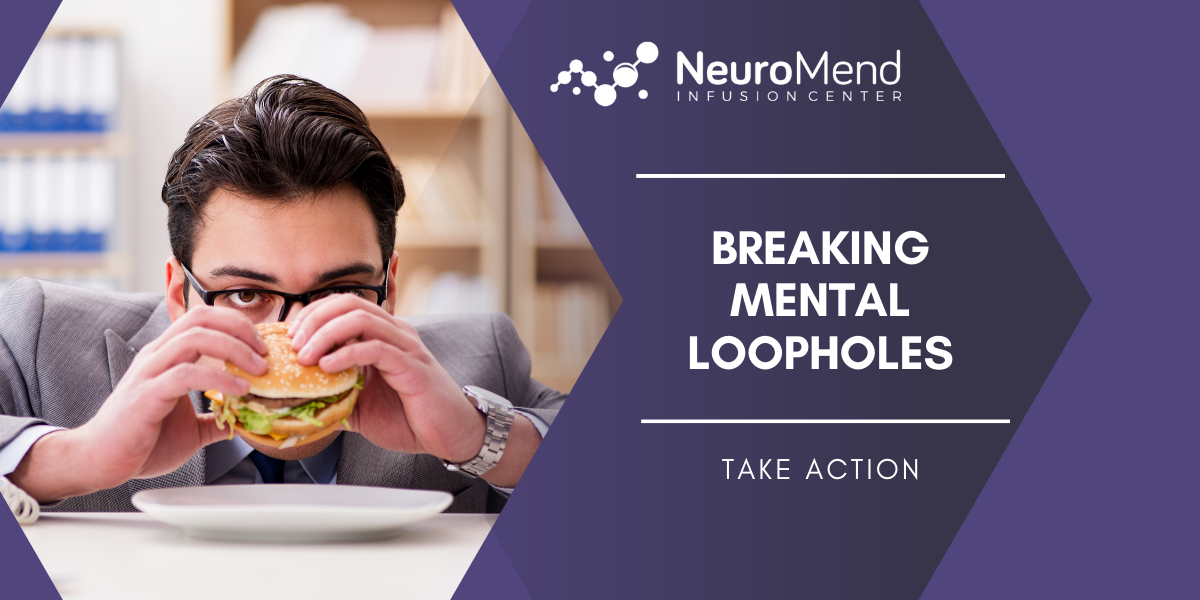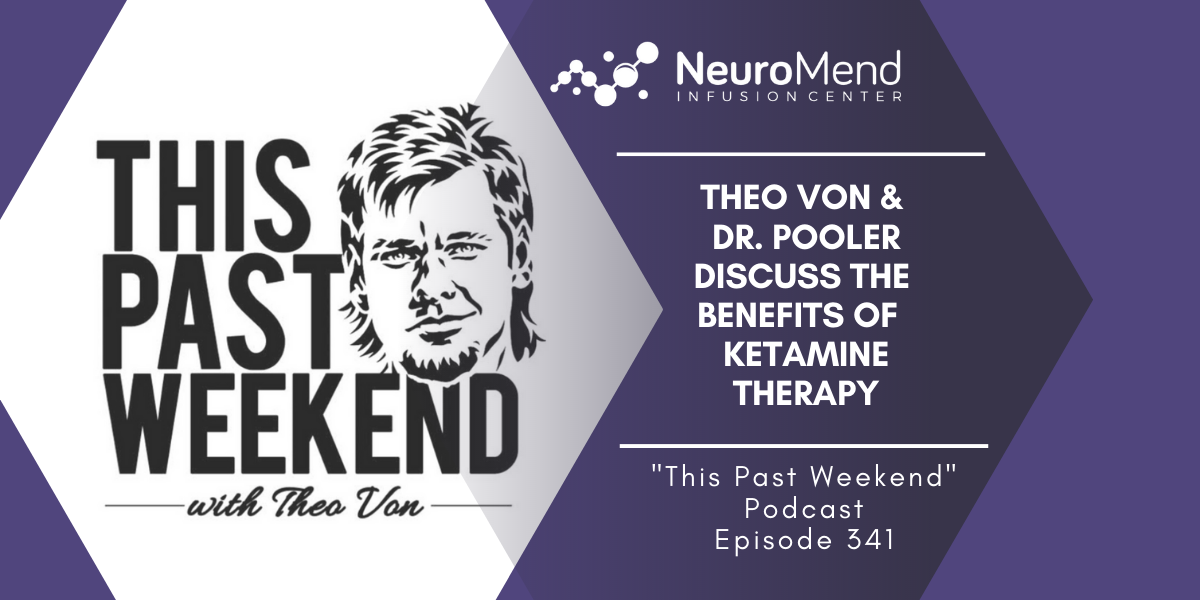.png?width=1200&name=Facebook%20-%20Featured%20Image%20-%20NeuroMend%20(7).png)
What's the connection between sleep and mental health? Sleep deprivation can affect your mental health and psychological state. Those who battle mental health problems are more likely to have a sleep disorder such as insomnia.
Consequently, sleep issues are significantly common in people with depression, anxiety, and bipolar disorder.
Keep reading to find out the impact sleep has on your hormones and why you will want to stay ahead of this as you attempt to achieve and maintain a healthy lifestyle, including staying hydrated!
Traditionally, clinicians treating patients with psychiatric disorders have viewed insomnia and other sleep disorders as symptoms. But studies in both adults and children suggest that sleep problems may raise risk for, and even directly contribute to, the development of some psychiatric disorders.
SLeep Quality Impacts Your Hormonal System
Most people won’t deny the fact that they probably aren’t sleeping as much or as well as they could or should be. Except for those people who think they are of the chosen genetically gifted few that just don’t require that much sleep (which of course is extremely rare).
Yet, not sleeping long enough or deep enough, over time, starts to impact way more than just your cravings for caffeine and sugar the following morning. It also start to impact your entire hormonal system and the sensitivity of your receptors. (That means that although you are producing enough of the hormone, your body is not responding to it.)
Why Focus on Sleep?
Sleep routines are not as sexy as intense workouts.
They are not as simple as taking supplements.
Yet, they are sort of challenging like changing your diet…
Which is why most people fail to work on or improve their sleep routine.
But, one thing is for sure, you can’t be the healthiest version of yourself without first dialing in your sleep quality and duration.
Overcoming Our Stressful Lifestyles
If you spend any amount of time on social media, you’d see that most people would simply rather talk about their recipes, count calories, or post pictures about their latest yoga pose or their 10,000 step habit to lose weight or keep healthy, as opposed to addressing the most common root of our problems: our stressful lifestyle.
Pair even just a modest amount of daily stress with inadequate sleep and you demolish your recovery potential.
Americans are suffering from just as much (and if not more) recovery debt than they are financial debt.
Why?
Because people are working more than they should and sleeping less than they need.
They wear their 15 hour work days and 80 hour work weeks like a badge of honor.
And, slowly but surely, they are hindering their hormone health along with crippling their immune systems.
The Importance of Sleep and Hormones
The discussion about health in most fitness and wellness circles is centered around diet and exercise.
Yet, as important as these may be, most fat accumulation has more to do with hormones than excess calories.
In fact, if you are certain that your issue is not due to excess caloric consumption, then you probably have a hormone issue to deal with. Learn more about Hormone Replacement Therapy!
But which hormones and how are they affected?
Leptin and Ghrelin
Leptin is regarded as the 'master hormone' when it comes to appetite and body fat levels. Increased levels of Leptin suppress appetite.
Meanwhile Ghrelin has the opposite effect -
Increased levels of Ghrelin increase your appetite.
So how does lack of sleep affect these two?
Research shows that lack of sleep makes you eat more and feel less full from your meals.
In the 2004 paper titled Short Sleep Duration Is Associated with Reduced Leptin, Elevated Ghrelin, and Increased Body Mass Index, researchers found that when are sleep deprived, our bodies produce more ghrelin and a decrease in leptin.
Insulin
But what about Insulin? How does poor sleep affect it?
One of Insulin’s primary roles is to determine where and how fast glucose gets processed from the blood stream.
Being sensitive to insulin is a good thing. You want a little to go a long way.
Too much of it floating around, and your lipid markers and body fat levels usually take a beating.
If you are chronically sleep deprived, you are literally asking for Diabetes and a fatter belly.
Coupled with your disrupted Leptin and Ghrelin levels, you may wonder why you keep craving and reaching for sweets later in the day.
It’s the result of the perfect hormonal storm!
You are more hungry than usual and your body cannot clear the sugar you are eating since your insulin receptors have been de-sensitized.
Millions of people are currently partaking in this subconscious sabotage by simply skimping on the required amount of sleep.
CORTISOL
Now that we have discussed Insulin, let’s move on to the hormone that most people correlate with too much stress: Cortisol.
Cortisol's roles include helping to control blood sugar levels, energize you first thing in the morning, regulate metabolism, help reduce inflammation, and assist with memory formulation.
Honestly, is it a bad hormone? - No.
Do most people have a bad relationship with it because they choose to be victimized by its role in survival? - Yes, of course.
Allow this graph to explain what your sleep hormone cycle (Cortisol and Melatonin) should look like:
Cortisol is a hormone that is released in response to stress and low blood-glucose concentration.
Melatonin is a hormone that regulates sleep and wakefulness.
If we were to look at the cortisol and melatonin curves of most people today, we would see a much different picture.
Most people either get to bed too late, shine too bright of light into their eyes too late at night, or simply sit up thinking about how bad their day was or how crappy tomorrow will be, thus skewing these hormonal rhythms.
So, before you look for a special food, supplement, drug, or hormone replacement therapy to lose body fat and increase energy, make sure you are not engaging in poor sleep habits or a poor sleep routine.
You should first take the time to ensure that you are not only maximizing your sleep efforts, but you should be monitoring your own sleep and the efficacy of it.
contact us
Sleep and mental health are linked, but affect each person differently. Staying ahead of the negative effects poor sleep has on your hormones can help you maintain optimal wellbeing.
Your psychological wellbeing is important and should never be minimized. While getting more sleep to relieve symptoms of poor mental health or anxiety can be helpful, your doctor may recommend therapy in combination with treatment like Ketamine.
If you or someone you know is battling sleep deprivation or symptoms of a mental health condition, the NeuroMend team is here to help.
We offer cutting-edge Ketamine protocols that have helped thousands of patients get back on their feet and achieve optimal health. Contact us today to learn more about our treatment solutions or schedule a free consultation.
Disclaimer: As of September 29, 2023, NeuroMend no longer offers Spravato treatments. We apologize for any inconvenience and encourage you to consult with our team or your healthcare provider for alternative options.

ABOUT NEUROMEND INFUSION CENTER
 We are an Evidence-Based Center of Excellence and the leading provider of Ketamine Infusions, IV Infusions, and Ketamine Consulting Services for Ketamine Clinics and IV Therapy Clinics.
We are an Evidence-Based Center of Excellence and the leading provider of Ketamine Infusions, IV Infusions, and Ketamine Consulting Services for Ketamine Clinics and IV Therapy Clinics.
We Provide Effective Treatment For The Following Conditions: Major Depressive Disorders, Post-traumatic Stress Disorder (PTSD), Bipolar Depression, Obsessive-Compulsive Disorder (OCD), Chronic Migraines, Severe Anxiety, Fibromyalgia, and Chronic Pain Syndromes









